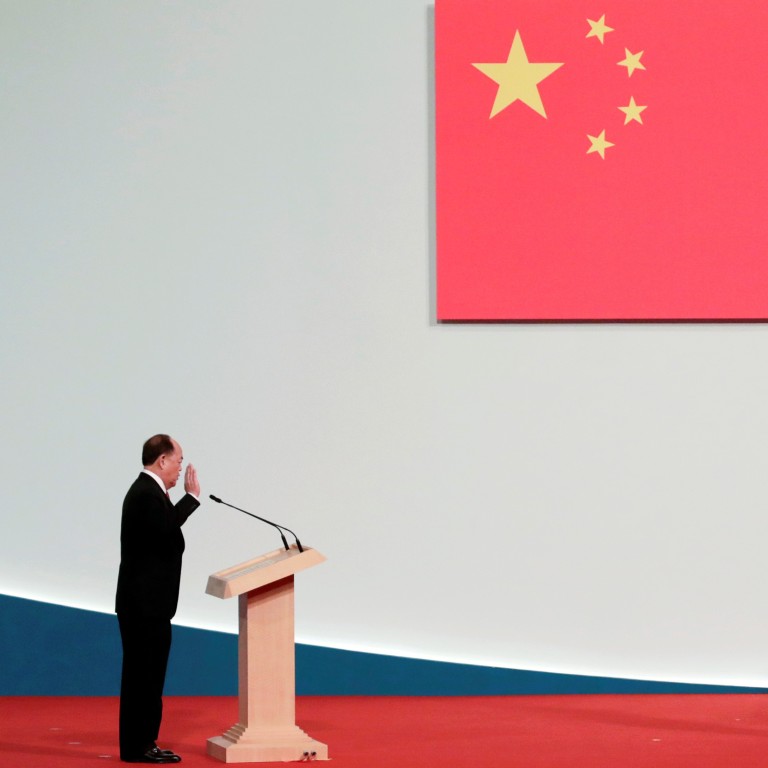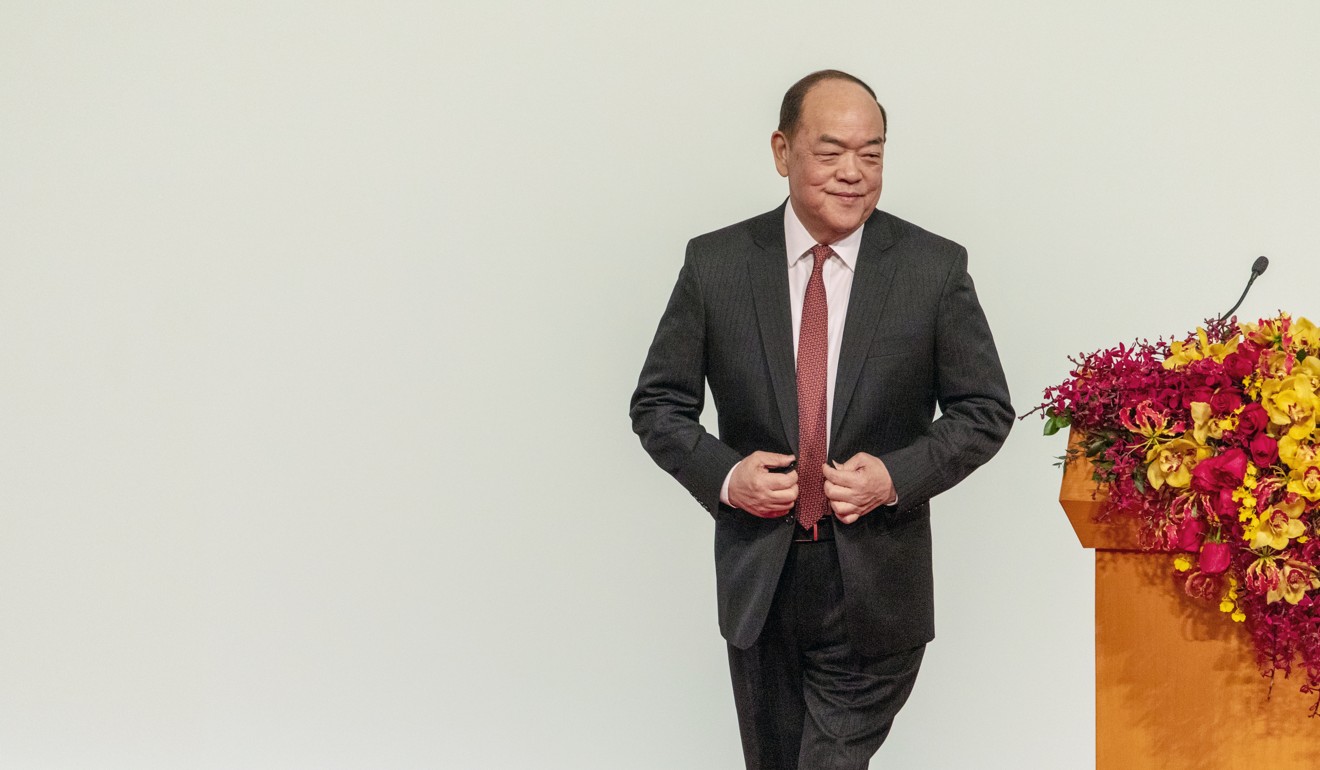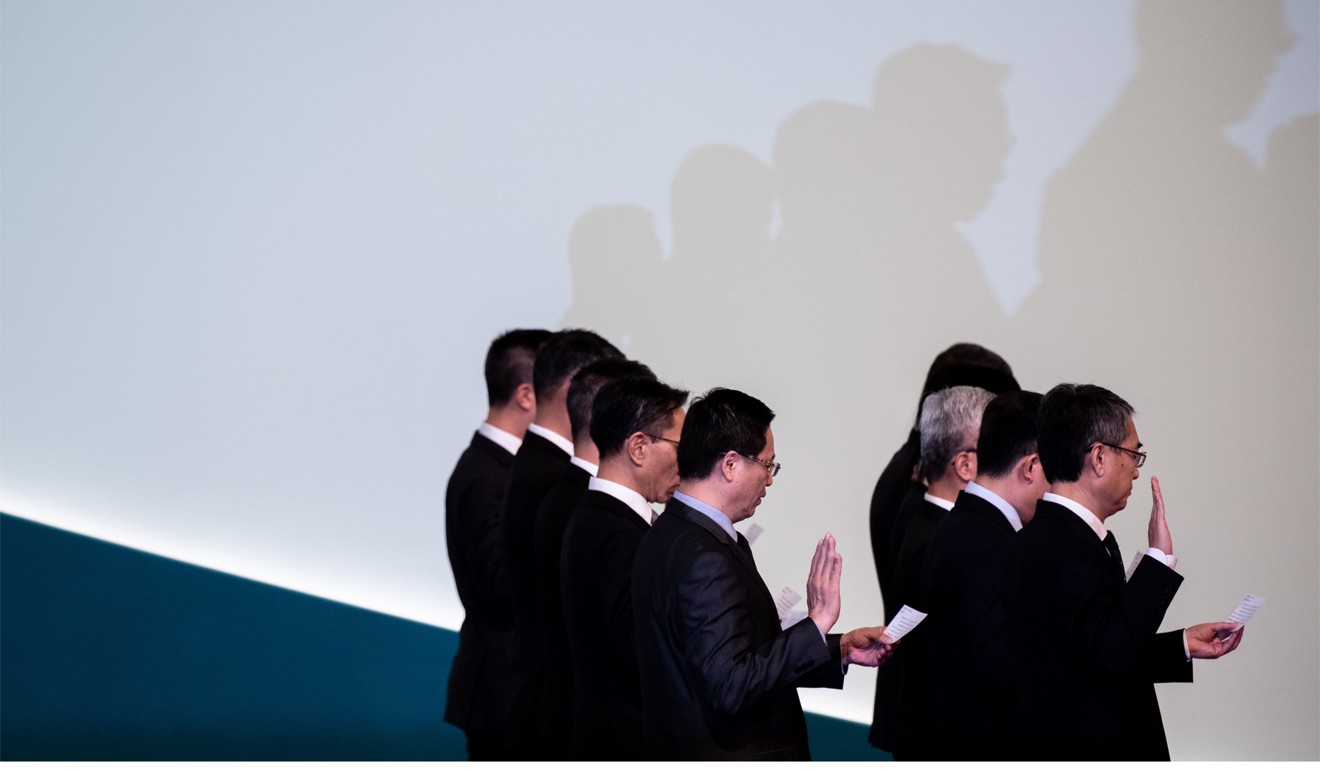
New Macau leader Ho Iat-seng completes transition from ‘incapable’ candidate to chief executive of casino hub
- In 2014 interview chief executive said there were ‘too many tough tasks to handle’ in running city
- Ho is no stranger to politics, having served as president of Macau legislature and on Standing Committee of the National People’s Congress
Five years ago, the then president of the Macau legislature Ho Iat-seng joked he did not have what it took to be the casino hub’s new leader.
“To be Macau’s chief executive, there are just too many tough tasks to handle. My capability is too low to handle [this job],” he told All About Macau Media in a 2014 interview.
But on Friday, a smiling Ho was sworn in as the city’s new leader by China’s President Xi Jinping, who has wrapped up his three-day trip in the casino hub. It remained unclear why Ho changed his mind.
The 62-year-old said in his Friday inauguration speech he was honoured to take on the top job, promising the citizens of Macau a brighter future with the support of the motherland.
“I understand that this honour also comes with challenging responsibilities,” he said in fluent Mandarin, unlike his predecessor Fernando Chui Sai-on who was always mocked for struggling with the language.

“This city is the shining demonstration that the ‘one country, two systems’ principle is entirely viable, achievable and popular.”
Under this principle, which applies to Hong Kong as well, the two cities are promised a high degree of autonomy.
Ho pledged to implement this principle in strict accordance with the Chinese constitution and the Basic Law, the city’s mini-constitution.
“We will nurture sectors and industries such as conference and exhibition, Chinese medicine, culture and creativity, and cutting-edge technology,” he said, against the backdrop of an economy that is reliant on the casino industry.
The Macau-born Ho was elected in August uncontested by a 400-strong committee comprised mostly of pro-Beijing elites. He received 392 out of 400 votes.
Macau’s lone candidate for city leader Ho Iat-seng doubles down on ‘one county, two systems’ principle
Ho came from a prominent family with wide industrial and business ties. His late father, Ho Tin, was a well-regarded industrialist who originally came from Zhejiang province and set up a company in Macau in 1956.
Despite being born in Macau, Ho’s connection to the mainland was not lost on him.
He studied electronic engineering and economics at Zhejiang University and was a member of the Chinese People’s Political Consultative Conference (CPPCC) in Zhejiang for about two decades. Ho also served as a member of the Standing Committee of the National People’s Congress (NPC).
The CPPCC is the mainland’s top political advisory body, while the NPC is the country’s legislature.
Ho was also formerly a member of the Executive Council, which advises the city’s leader, as well as a lawmaker, and vice-president and then president of the legislative assembly.

“Just because they were issued press accreditation doesn’t mean we totally welcome them,” he said.
Of the 10 key officials under the new administration, five were born and raised on the mainland. Secretary for Security Wong Sio-chak, prosecutor general Ip Son-sang, and the Secretary for Transport and Public Works Raimundo Arrais do Rosario stayed in their posts.
The Post has previously reported that, eight years before Macau to Chinese rule in 1991, Beijing sent at least 12 mainland legal experts to Portugal to learn the language and legal system so they could take up government posts in the gambling hub.
A source has said Beijing did so because it was worried there would not be enough local legal talent within the Macau civil service after the handover.
20 years after handover: can Beijing’s golden child Macau grow up to be more than the world’s casino capital?
The group included Wong, Ip, five prosecutors and three judges, as well as disgraced former prosecutor general Ho Chio-meng.
Separately, the new Secretary for Social Affairs and Culture, Ao Ieong Iu, was earlier attacked for lacking experience in the area she is now in charge of.
But Antonio Ng Kuok-cheong, a pro-democracy lawmaker in Macau, believed Ao was appointed to the role because she had been a pragmatic official in the past, having been the director of the Identification Services Bureau from 2014 until she was given the new job.
“The former secretary for social affairs and culture made a lot of grand plans, many of which were not accomplished yet,” he said. “I believe that rather than someone who talks about plans, the new chief executive wanted someone who can get things done.”
Additional reporting by Tony Cheung

